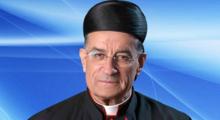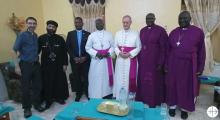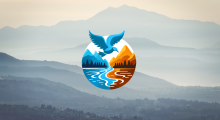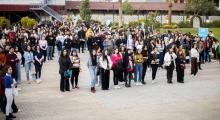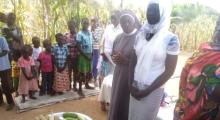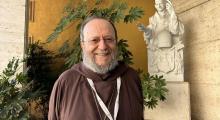Issued by the Catholic Center for Studies and Media - Jordan. Editor-in-chief Fr. Rif'at Bader - موقع أبونا abouna.org
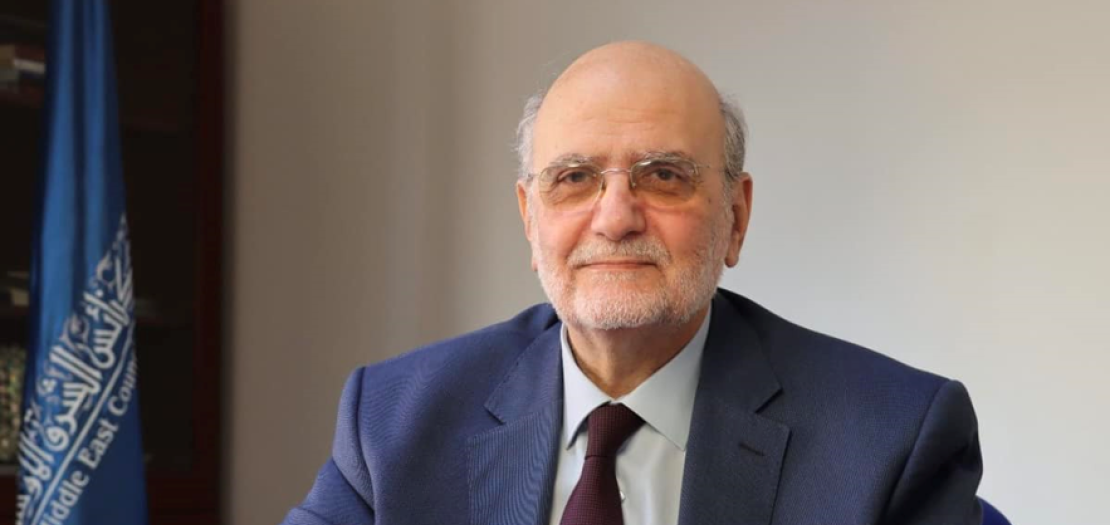
For the fourth consecutive year, the Archdiocese of Aleppo, Alexandretta, and their dependencies is holding the “Light from Aleppo” events, a religious, cultural, and social program addressing many aspects of our faith, social, and cultural life. It concludes with a national gathering that brings together all sectors of the city and the Levant in a cultural-artistic festival affirming the unity of the homeland and society.
The story of founding and launching this initiative is long, as told by the Archbishop, His Eminence Metropolitan Aphram Maalouli. He considers that the roots and idea of this initiative came from his predecessor, Metropolitan Paul Yazigi, who has been missing for nearly a decade and a half along with his friend and fellow hierarch, Metropolitan Youhanna Ibrahim. The Middle East Council of Churches designated the day of their abduction as an ecumenical day for the kidnapped and forcibly disappeared, a category that sadly includes all victims of forced disappearance that spread during the wars which ravaged Syria in the past two decades. His Eminence also recalls that the decisive encouragement to proceed with this initiative came from His Beatitude Patriarch John X.
What concerns us in this article is to highlight the positive aspects of continuing this initiative and launching it again this year, without any change in the structure or scope of the program.
This year’s launch of “Light from Aleppo” takes place while the Syrian Arab Republic is undergoing a radical political transition, resulting from a change in the political system and ruling team. This has been accompanied by turmoil and events naturally associated with state transitions. As the popular saying goes, “Keep your head low” during such changes, because history teaches us that every political shift brings heavy events that may create victims and losses.
Launching “Light from Aleppo” means that the will to live and to persevere remains strong among the people of the Levant. This time, the response has come from a Christian Archdiocese that includes Aleppo and the occupied province, and it may later come from Islamic or social institutions. All of this is a clear expression of the necessity of continuing normal social life in all its dimensions, regardless of political transformations in the country. Even more, launching the initiative represents a gesture of respect toward the emerging Islamic state in Syria, as it signals the possibility of holding activities that have a Christian background yet a national aim, under its umbrella.
The second dimension worth highlighting, through analyzing this initiative, is the element of national unity in Syria—the Levant. This initiative, as I witnessed during my participation last year, brings together all components of Aleppine and Syrian society. I experienced a wonderful atmosphere of harmony and fellowship, something our people in Syria are well known for.
Launching “Light from Aleppo” is a cry in the face of despair and frustration that afflict any people living through major political transformations, often accompanied by military operations and uncertainty about the future. This cry awakens within us the energy to look forward, stirring hope that boosts our capacities and morale toward a better tomorrow.
Had these events not been launched, God forbid, it would have meant a disappointment for the people of Aleppo and its surroundings, at the very least. It would have been seen as a sign that life there had stopped, whereas we all know that our people in the Levant have a strong will and great vitality, which long enabled their country to enjoy economic self-sufficiency and abundance.
In conclusion, we appeal to all institutions present in the Levant, religious or social, to continue their regular activities, affirming that the will to live is stronger than the turmoil striking the country, turmoil that will surely vanish soon.
In the same context, we appeal—and indeed request—the state institutions, despite the heavy burdens they bear, to provide all the necessary facilities for carrying out these activities. This will prove their ability to safeguard security, and especially freedoms, which Islamic faith guaranteed long before international charters.
A state built on faith provides a guarantee for the society it governs, provided that the teachings of that faith are applied equally to all citizens, ensuring justice, which is the foundation of rule, and preserving dignity, without which life loses its meaning.


